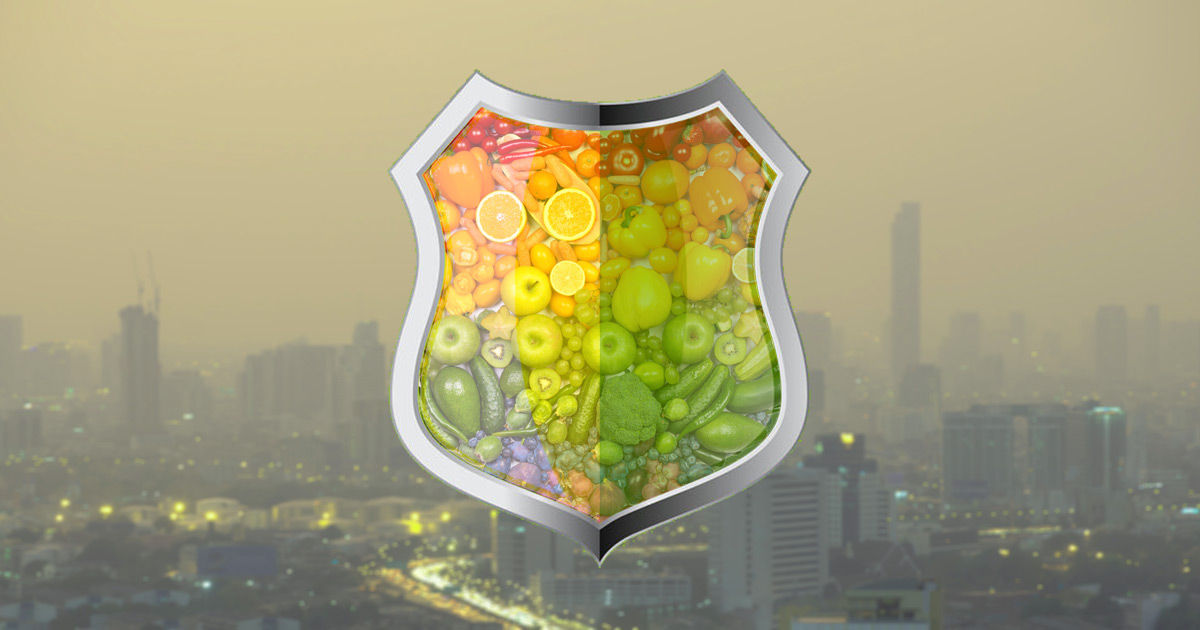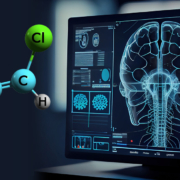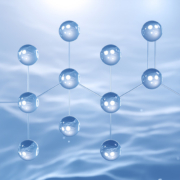Dealing with the Chemicals in Our Lives
We began this journey with the EWG Dirty Dozen, examined common chemicals we come in contact with such as TCE, and looked at the latest threat—PFAS. These chemicals are ubiquitous, so we’re left with the challenge of how to protect ourselves.
In reality, this is nothing new. Every home and business dumped waste into the nearest body of water until relatively recently. Before companies dumped chemicals into oceans and rivers, oil deposits naturally seeped into rivers. During the 1800s coal was used for heating, and the smoke often obscured the sky over London; it looked a lot like the image above, minus the electric lights. During the 1970s, emissions from cars caused a similar haze over Los Angeles. The difference today is that we have the means to test for chemicals in our air, our water, and our food, and we know more about how environmental chemicals affect our health.
Most people survived then and most people will survive today. The question is this: at what cost to our health? Complete avoidance of chemicals isn’t going to be possible for most of us, so what should we do?
Avoid Exposure
There are several ways that we can limit our exposure to chemicals. The most common forms of exposure are as a gas we breathe, in the water we drink and bathe in, and in our food and drink. If you have to work in an environment that requires exposure to chemicals, take whatever precautions are recommended. For those of us who do not, we should still follow any directions on such products.
If you use solvent cleaners, glues, or paints, wear the correct mask and gloves as recommended. Make sure the area is well-ventilated and stays that way for as long as recommended. Even if you’re using a paint brush and roller with latex paint, wear a mask. Is that overkill? Try this: after using a roller for any color paint, blow your nose. Aerosolized droplets get airborne and travel into your sinuses and lungs. Black spray paint will give you an even more dramatic illustration of what happens without a mask.
When it comes to your home water supply, use a home filtration system that’s reverse osmosis or carbon-filter based. To be sure it traps PFAS, look for certification that rate NSF/ANSI 53 for carbon filters or NSF/ANSI 58 for reverse osmosis.
Avoiding hazardous chemicals in foods can be tricky. That’s why the EWG puts out the Dirty Dozen every year. You can always use the organic route and purchase only fruits and vegetables that were grown organically. You can also find free-range meat and poultry along with dairy that’s derived from cows raised vaccine free.
But if you like processed foods, the more highly processed foods will contain more chemicals that may be a cause for concern by some people with food sensitivities, even if they have GRAS approval from the FDA. You’ll have to find out by trial and error.
Let Food Be Your Medicine
There is one way to be proactive in dealing with chemicals in our environment, no matter what the form: eat a diet high in plant-based foods. The reason is simple: vegetables, fruits, herbs, whole grains, and nuts contain phytonutrients. Many different types of phytonutrients are involved in the detoxification processes of the body, so the more variety in your diet, the better. They will not make you immune to any damage, but they can help remove the toxic chemicals from your body. It’s beyond the scope of this Memo to cover every phytonutrient and what they might do; I say “might” because there are thousands of them. The simplest thing to do is to eat as wide a variety as you can and let your body figure it out.
If you remember the Memo on supplements from two weeks ago, the research I talked about strongly suggested that whether in fresh food or supplemental form such as powders or drinks, plant extracts are beneficial. Finding a good blend of foods and supplements should help your body deal with the chemicals in our world.
The Bottom Line
I hope this series has made you aware of the chemicals we face every day and what we can do about it. Let me leave you with two thoughts:
- Not everyone will be impacted by chemicals in the same way. There are genetic factors in play together with your immune system that provide an immediate response from the microbiome forward.
- The thought might have crossed your mind after reading about the Dirty Dozen and the Clean Fifteen that you should eat only organic sources. I don’t think it matters. This is the quote from the FAQs on the EWG website when asked that question: Everyone should eat plenty of fresh fruits and vegetables, whether organic or conventionally grown. The health benefits of such a diet outweigh the risks of pesticide exposure.
Do what you should have always done: Eat your vegetables! Eat organic if you can, but quantity and variety are more important.
Spring Break is next week, and we have a lot scheduled with Riley, our grandson. We’re taking the week off and will be back April 11. We hope you all have an exciting week with wonderful weather.
What are you prepared to do today?






